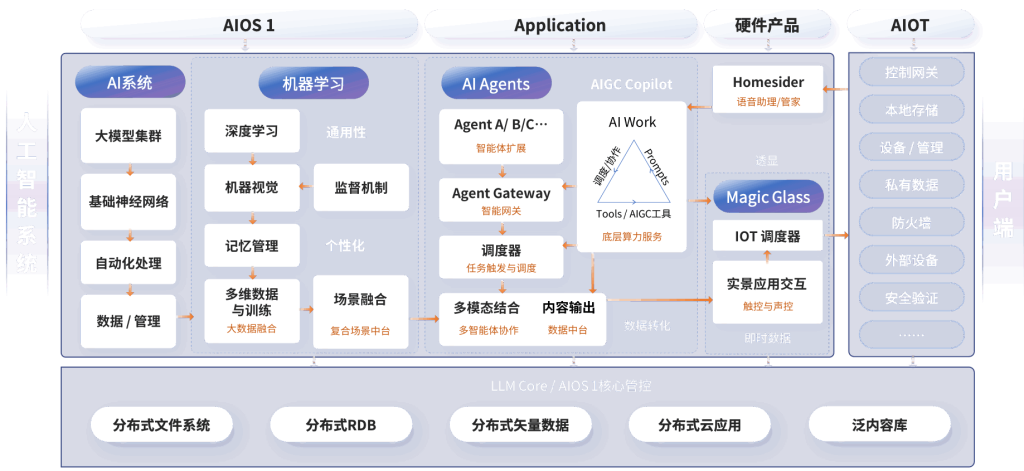In recent years, the marketing landscape has undergone a monumental transformation, largely driven by advancements in artificial intelligence (AI). This evolution is attributable to the increasing amount of data generated by consumers and the technologies available to process this data. AI in data-driven marketing focuses on leveraging data analytics to better understand customer behaviors and preferences, allowing businesses to make more informed marketing decisions.
.
### The Rise of Data-Driven Marketing
Data-driven marketing refers to the strategic utilization of customer data to optimize marketing efforts, personalize content, and inform campaign strategies. As consumers interact with brands across various platforms, their digital footprints generate massive amounts of data. Companies are now investing heavily in technologies and AI solutions to better analyze this data and derive actionable insights. According to a report by Statista, the global big data and analytics market is projected to reach over $684 billion by 2030, indicating the critical importance of data in strategic decision-making.
.
### The Role of AI in Data-Driven Marketing
AI technologies such as machine learning and natural language processing (NLP) play vital roles in interpreting vast datasets. They enable marketers to segment their audience more effectively, delivering personalized experiences that can drive engagement. For instance, customer relationship management (CRM) systems can utilize AI algorithms to predict customer behavior and guide marketing strategies accordingly. AI tools can analyze patterns in customer data, allowing brands to understand which products or services might appeal to specific segments of their audience.
.
### Hugging Face Transformers: Revolutionizing Natural Language Processing
One of the most significant advancements in AI has come from the field of NLP, with libraries like Hugging Face Transformers leading the charge. Hugging Face provides tools that make it easier for developers to employ AI-based text analysis and generation in their marketing campaigns.
.
The Transformers library enables marketing teams to automate customer service interactions, generate tailored content for different target markets, and analyze customer sentiment. With pre-trained models that understand context and user intent, businesses can enhance their communication and engagement strategies. A brand leveraging Hugging Face cannot only generate personalized emails or social media content at scale but also conduct sentiment analysis to inform future marketing endeavors.
.
### BigML: Empowering Predictive Analytics
While Hugging Face enriches text data analysis, BigML specializes in predictive analytics. This cloud-based machine learning platform allows marketers to create predictive models that enhance campaign outcomes. Using BigML, businesses can develop algorithms that predict customer churn, assess lead scoring, and optimize pricing strategies.
.
For example, a retailer can use BigML to analyze customer purchase history and predict which customers are likely to need re-engagement efforts. By understanding these patterns, marketing teams can tailor outreach campaigns to retain valuable customers. As AI technology becomes more integrated into data-driven marketing, tools like BigML are essential for translating data into effective business strategies.
.
### Current Trends in AI-Driven Marketing
As organizations integrate AI into their marketing efforts, several key trends have emerged:
1. **Hyper-Personalization**: Leveraging detailed customer insights, brands increasingly aim for highly personalized marketing experiences. By employing AI-driven analytics, organizations can create tailored content that resonates significantly with their audience.
2. **Automated Content Creation**: Companies are adopting AI-generated content to maintain ongoing engagement with their customers. Utilizing tools like Hugging Face Transformers, marketers can automatically generate blog posts, social media updates, and product descriptions at scale.
3. **Predictive Analytics**: Marketers are utilizing predictive analytics to forecast customer behavior and trends. AI-powered platforms like BigML are essential for making accurate predictions that guide marketing strategies.
4. **AI-Powered Customer Interaction**: AI chatbots and virtual assistants are increasingly being used to engage with customers. These systems provide quick responses to inquiries and improve overall customer experience.
.
### Challenges in Implementing AI in Marketing
Despite the myriad of benefits associated with AI in data-driven marketing, businesses face several challenges in implementation:
1. **Data Quality and Integration**: For AI to produce reliable insights, data quality is paramount. Marketers often struggle with integrating disparate data sources and maintaining clean datasets.
2. **Change Management**: The introduction of AI technologies may require significant shifts in organizational culture. Companies must ensure that teams are equipped with the necessary skills and support to leverage AI effectively.
3. **Privacy Concerns**: With increasing regulations around data protection (e.g., GDPR), marketers must navigate compliance challenges while utilizing consumer data to drive strategies.
4. **Cost and Accessibility**: Implementing AI solutions may require substantial investments in technology and training. Smaller businesses, in particular, may find it challenging to adopt these advanced tools.
.
### Future Outlook
The future of AI in data-driven marketing appears promising, continuing to offer innovative solutions for businesses looking to enhance their engagement strategies. As the technology evolves, marketers can expect:
– **Greater Integration**: The integration of AI with existing CRM and data analysis solutions will streamline operations and enable more efficient campaign management.
– **Increased Accessibility**: As AI tools become more user-friendly and affordable, more businesses will access advanced marketing capabilities.
– **Enhanced Real-Time Analytics**: The development of real-time analytics will provide marketers with instantaneous insights, allowing for rapid adjustments to campaigns.
.
### Conclusion
AI’s impact on data-driven marketing is undeniable. By utilizing tools like Hugging Face Transformers for text analysis and BigML for predictive analytics, companies can significantly transform their marketing strategies. As data continues to grow in both volume and importance, embracing AI technologies will enable businesses to remain competitive in an ever-evolving landscape. Marketers must navigate the accompanying challenges, focusing on enhancing their skills and adapting their strategies to leverage the full potential of AI in their marketing efforts.
Sources:
1. Statista. (2021). “Big Data Market Size worldwide from 2018 to 2025.”
2. Hugging Face. (2023). “Transformers Documentation.”
3. BigML. (2023). “Predictive Analytics for Marketing.”
By understanding and implementing AI in data-driven marketing, brands can not only enhance their customer engagement but also gain a powerful edge in their respective industries.





















